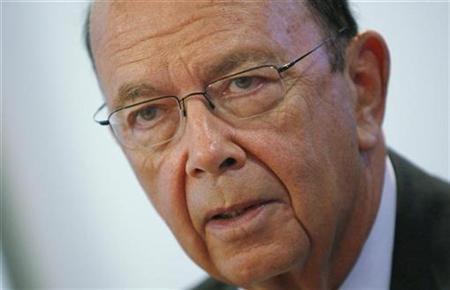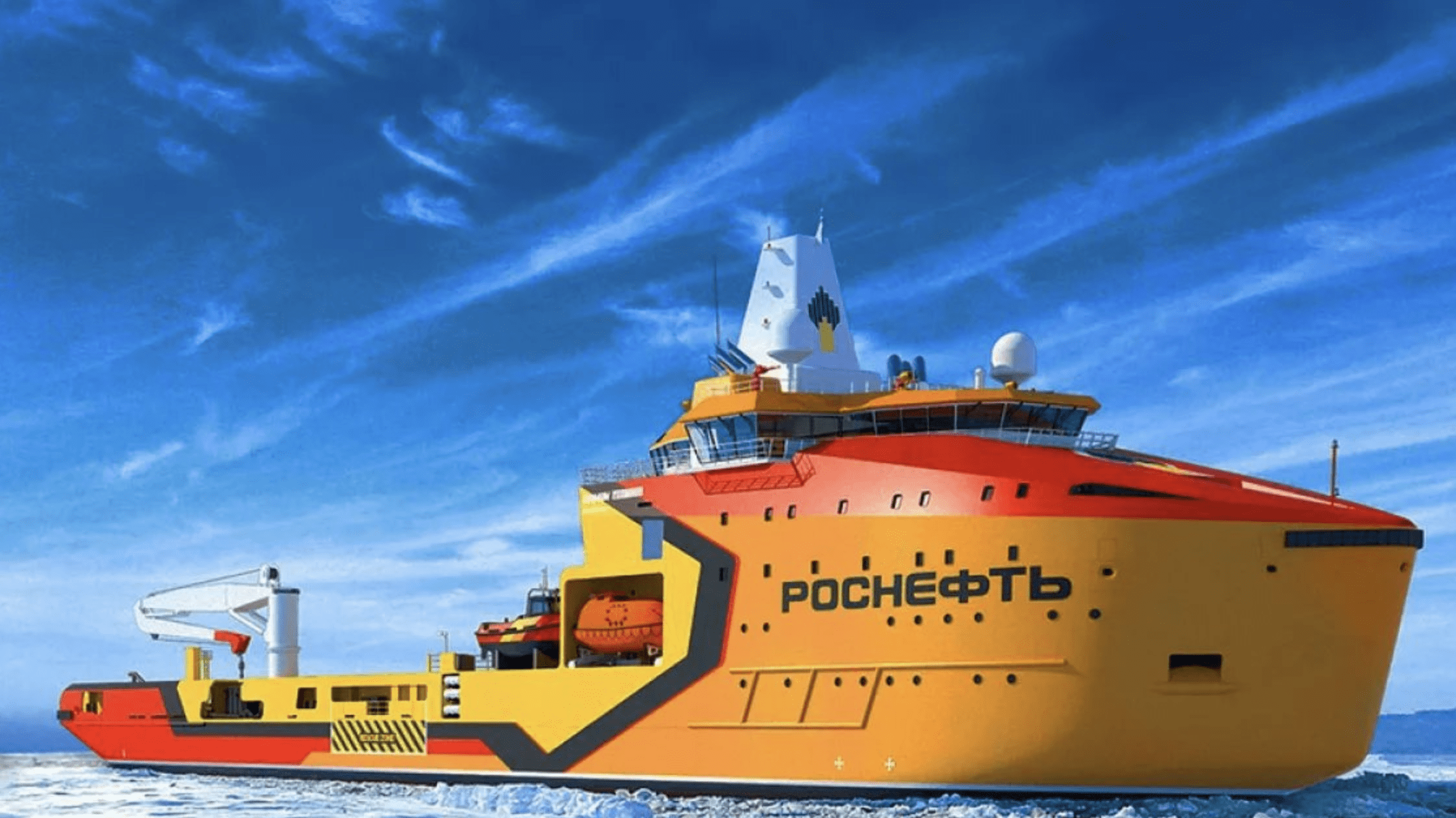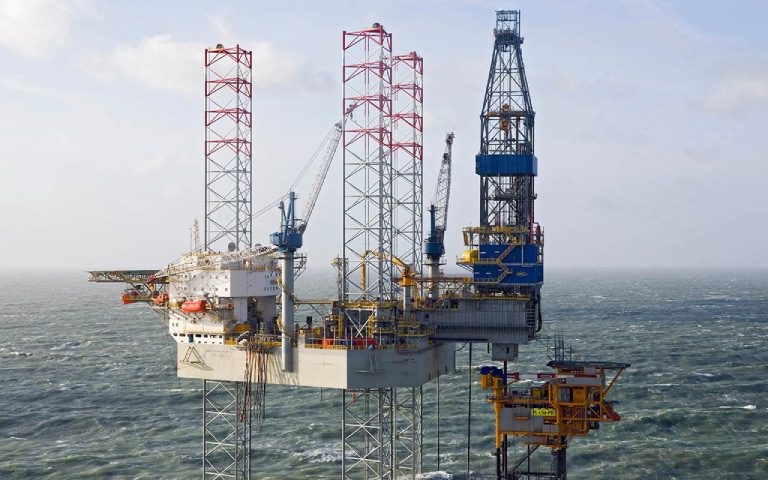Wilbur Ross, chairman and CEO of WL Ross & Company LLC. (c) REUTERS/Mike Segar
Aug. 20 (Bloomberg) — Wilbur Ross, the billionaire investor in struggling industries, says Chinese limits on shipbuilding will help the cargo market overcome the excess of carriers that led to the worst slump on record.
The China Association of the National Shipbuilding Industry said last month about 30 percent of the country’s shipyards will close in five years and the government enacted a three-year plan to limit capacity Aug. 4. Ross, part of an investment group that spent $900 million on fuel tankers in 2011, said China will avoid a repeat of its most recent construction program, the biggest by one nation in history.
The boom sent ship earnings to at least a 23-year low. Investors are becoming more bullish because construction has slumped 61 percent from its 2009 peak and demolition of obsolete vessels is near a record. Shares of Monaco-based Scorpio Tankers Inc. rose 37 percent this year and will climb another 17 percent in 12 months, while Frontline 2012 Ltd. will advance 43 percent, analyst estimates show.
“The combination of reducing order books and increased scrappage will result in a better balance between supply and demand by late 2014 or early 2015 in most segments,” Ross, the founder of WL Ross & Co., said in an Aug. 13 e-mail. “I’m less worried than I was.”
Lowest Rates
The ClarkSea Index, a measure of earnings for vessels across the merchant fleet, averaged $9,053 a day this year, the lowest annual figure since at least 1990, according to Clarkson Plc, the world’s largest shipbroker. The index peaked at $50,702 at the end of 2007, triggering record fleet expansion just before the global recession.
Ross’s group bought a fleet of 30 oil-product tankers two years ago. His company also has a majority stake in Navigator Holdings Ltd., which controls one-third of the world’s mid-size carriers of liquefied petroleum gas. The New York-based investor, whose holdings range from steel mills to U.K. mortgages, said demand growth will be strongest in areas related to U.S. energy supplies and he’s considering expanding his investments in shipping.
Scorpio and Frontline 2012 have the largest orders for new vessels, building tankers to export energy from the U.S., according to Frode Moerkedal, an analyst at RS Platou Markets AS, the Oslo-based investment bank that’s part of the same company as Norway’s biggest shipbroker.
Tripling Profit
Shares of Scorpio, which operates 45 oil-product tankers and has orders for 60 more vessels, rose to $9.71 in New York in 2013 and will reach $11.34 in a year, according to the average of 12 analyst estimates. The company’s net income will almost triple to $81.2 million in 2014, the mean of 12 forecasts shows.
Frontline 2012 gained 52 percent to 41 kroner ($6.93) in Oslo this year and will advance to 58.78 kroner in 12 months, according to the average of seven analyst estimates compiled by Bloomberg. Profit will jump more than fourfold this year to $6.4 million and to $29.3 million in 2014, the estimates show. It had 58 ships on order as of May.
Shipbuilding was among industries including iron and steel, cement, electrolytic aluminum and flat glass that need to phase out capacity, China’s Ministry of Industry and Information Technology said in July.
Yards Closing
The combined profits of 80 major builders monitored by the country’s shipbuilding association fell 54 percent in the first half of the year to 3.58 billion yuan ($584 million), China Daily reported July 24.
Chinese companies built 300.4 million deadweight tons of ships since 2007, more than any other nation, according to London-based Clarkson. South Korea supplied 282.5 million deadweight tons over the same period.
The government may not be able to prevent yards from accepting more orders as vessel prices rise, said Urs Dur, a New York-based managing director of Clarkson Capital Markets, the shipbroker’s investment-banking unit. Orders this year are already 10 percent more than in all of 2012, Clarkson data show.
The cost of a new Capesize, the largest type of iron-ore carrier, built in China rose 12 percent to $47 million in the first half, according to data from Simpson, Spence & Young Ltd., the second-largest shipbroker. The 9.3 percent increase in May was the largest since 2003, its figures show.
World Trade
While growth in China will slow to 7.5 percent this year, the weakest since 1990, the median estimate of 57 economists surveyed by Bloomberg showed, the nation’s economy is still expanding fast enough to generate record cargoes of everything from iron ore to coal and soybeans. The country’s rate of growth will still be almost four times the global average.
World trade will expand 3.1 percent this year and rise until at least 2018, the International Monetary Fund predicts. The shipping industry carries 90 percent of global trade, according to the Round Table of International Shipping Associations.
Fleet growth will slow for a third consecutive year, Clarkson estimates. The rate of expansion will fall to 4.9 percent in 2013 and 4.2 percent next year, the lowest since at least 2004, its figures show.
Demolitions are also diminishing the glut, Ross said. Owners scrapped a record 58.3 million deadweight tons last year and will break up another 47.6 million tons in 2013, the second- highest for data starting in 2004, according to Clarkson.
Container Ships
Ross said in a June 20 interview on Bloomberg TV’s “The Pulse” with Anna Edwards he was concerned Chinese shipbuilders would prolong the glut of container ships and dry-bulk carriers. The country wants to preserve jobs in the industry and make its exports competitive by keeping transportation costs low, he said at the time.
“A fear for investors is that China would support their yards by building a lot of ships,” said Moerkedal of Platou, whose recommendations on the shares of shipping companies returned 16 percent in the past year. “If that’s not going to be the case, then it’s a positive.”
– Isaac Arnsdorf, Copyright 2013 Bloomberg.

 Join The Club
Join The Club











